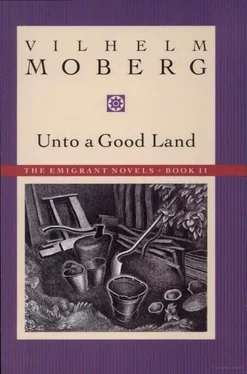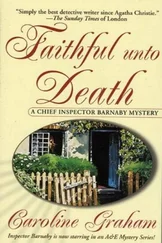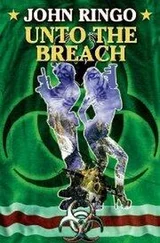The Finn answered that nearly all such women were born in the Old World; some had fallen into sin while crossing on the ships; others, perhaps, ran out of traveling money when they reached New York, and when they couldn’t get beyond the pier, they sold that which could be sold most easily and quickly. But a whore’s life in North America lasted only four years at the most. Then came death. That is to say, if she were healthy and sound at the beginning. Most of them became venereal cases, their bodies covered with stinking sores, their limbs rotting away, falling off one after the other. The poison buried itself inside their bones, he had heard; there it reproduced itself, from generation to generation. In this way God’s law was fulfilled, as it was written in the commandment of the catechism: the sins of the fathers were visited on the children, unto a third and fourth generation “of them that hate Me.”
When they rounded a corner, their guide stopped and pointed to a stone pedestal near the street: “On that foundation stood the last king who reigned in America.”
The mass of stone was at least twenty feet high. Robert asked: “What was the king’s name?”
“I don’t remember. He was an English king. He was made of lead!”
“Oh, I understand; it was a statue?”
“That’s right, boys! It was a lead statue of a king!”
The Finn explained: The English king reigned so poorly and so tyrannically that the Americans went to war to get rid of him. But they had a scarcity of bullets for their guns, so they melted down this leaden image of their king. When the English came to chastise the obstinate Americans, they were greeted by pieces of lead from their own king. The fine bullets hit them right between the eyes! So the Americans won the war and became a free people. That’s what happened to the last king in America.
And who could tell — perhaps the European people one day would put their king statues in pots, and boil and melt them and make bullets of them. Then they too might be free.
Robert nodded; he understood: because kings were forbidden in America, one might speak as one would about them.
Now they turned right and entered a wide street. In great pride the Finn held both his hands out over the street as though to show something particularly his own, something his hands had made: this was Broadway, the most beautiful street in the world!
They had been sucked into a solid mass of people moving slowly about their errands, as it was impossible to hurry, giving way always to the right to avoid bumping against one another. So the boys did likewise. The walkers did not look each other in the face when meeting, no one stared in curiosity at anyone else. Robert and Arvid kept as close to the Finn as they could; they were jostled and pushed a little when they failed to give way fast enough, and they felt dizzy and bewildered in this multitude, faced with the endless horde passing on this street, said to be the world’s broadest.
Robert tried to estimate the breadth of Broadway and he thought it must be more than seventy-five feet wide. The Broad Way, he knew the meaning of the name from his language book. Once he had seen a picture with the same name, and this picture had illustrated the road Man walked through life, crowded with people indulging in sin. That road had led to the Gates of Hell. On this street, also, wherever it led, was a jostling crowd. Most people he saw had white-skinned faces and were shaped like his own people. But the great difference in dress surprised Robert. Here walked men in elegant, well-brushed, expensive clothes, with clean, white-shining linen around their necks and polished boots on their feet. He saw other men, too, in worn-out, ragged garments, dirty shirts, and with their feet wrapped in old rags; some even went barefoot; they must burn their feet on these hot stones. He thought those poorly dressed men must be new arrivals in this country; they had not yet had time to get rich.
He saw many Negroes, all going about free and unchained. He had thought that black people held as slaves were in chains and led by guards, like dogs on leashes. He noticed Negroes laughing so broadly that their teeth gleamed white against their dark lips; but others looked so sad, shy, and downtrodden that the sight of them hurt him deep inside. He guessed that those who laughed had kinder masters than the others.
The Finn said the houses on this street were the highest ever built in the world. Some were, indeed, as tall as six stories, and taller houses could not be built.
“Danjel says we have arrived at the Tower of Babel,” volunteered Arvid.
“Babel’s Tower fell long ago,” Robert informed his friend.
They looked at the houses along Broadway; some were built of wood and stone, and painted in many colors — white, clear red, black, and yellow. Some houses even had walls with white stripes of plaster; this was a curious sight, striped houses.
In the middle of the street rode men in black coats and high hats, their horses well fed, newly curried, with flanks shining. Wagons rolled by, gilded spring wagons bearing women in fine clothes; there were plain carts loaded with ale barrels, carriages with white teams, cabs, gigs, clumsy wagons drawn by oxen, light vehicles drawn by horses small as colts, four-wheelers, two-wheelers, big and small wagons, light and heavy ones. Everything that could be put on wheels and pulled by animals rolled by on this street.
Arvid pointed in amazement at a small, gray, long-eared, long-haired animal which stood quite still between the shafts of a cart: “That thing is neither horse nor ox!”
“It’s an ass,” said the Finn.
Robert hurried to show what he knew: “One can ride on them too,” he said. “It’s told in the Bible that Jesus rode on an ass into Jerusalem.”
“On an animal like that?” asked Arvid. “How could he sit straddle-legged on such a puny creature?”
They slowly continued their walk up Broadway. A great fat sow with a litter of pigs was poking about in the gutter on their side of the street. The mother sow was as long legged as a calf, but her teats hung so low they almost reached the ground; the little piglets were light brown, almost like whelps, and ran between the legs of the walkers so that Robert almost tripped. Arvid counted fourteen in the litter and observed that American swine were longer legged than Swedish.
Robert said the Americans didn’t seem afraid to lose their pigs, letting them run around at will, but the Finn informed him that every owner marked his swine with an ear cut; moreover, there were so many swine in America, no one cared much if an occasional litter were lost. All garbage and sweepings were thrown into the streets, and the swine kept the town clean, he added. Here slops were lying in piles, and some of the houses they passed smelled as though more slops were being prepared inside.
But the street smell of pigsties was familiar to the two youths from Swedish peasant communities. In Sweden or North America, in Ljuder Parish or New York City, they could find no noticeable difference in the smell of swine dung.
From time to time the Finn stopped and peered into windows as though he were looking for some particular place. Arvid and Robert stopped also, but as far as they could judge, every house was a shop, and every entrance had something written over the door in large, gilded letters.
At last the Finn stopped in front of a small house, not much bigger than a shed; it could be a shop, but there were no shop articles in the window. The Finn pointed to a placard nailed to the door:
NOTICE!
This shop is closed in honor of the King of Kings,
Who will appear about the twentieth of October.
Get ready, friends, to crown Him Lord of All.
Читать дальше










